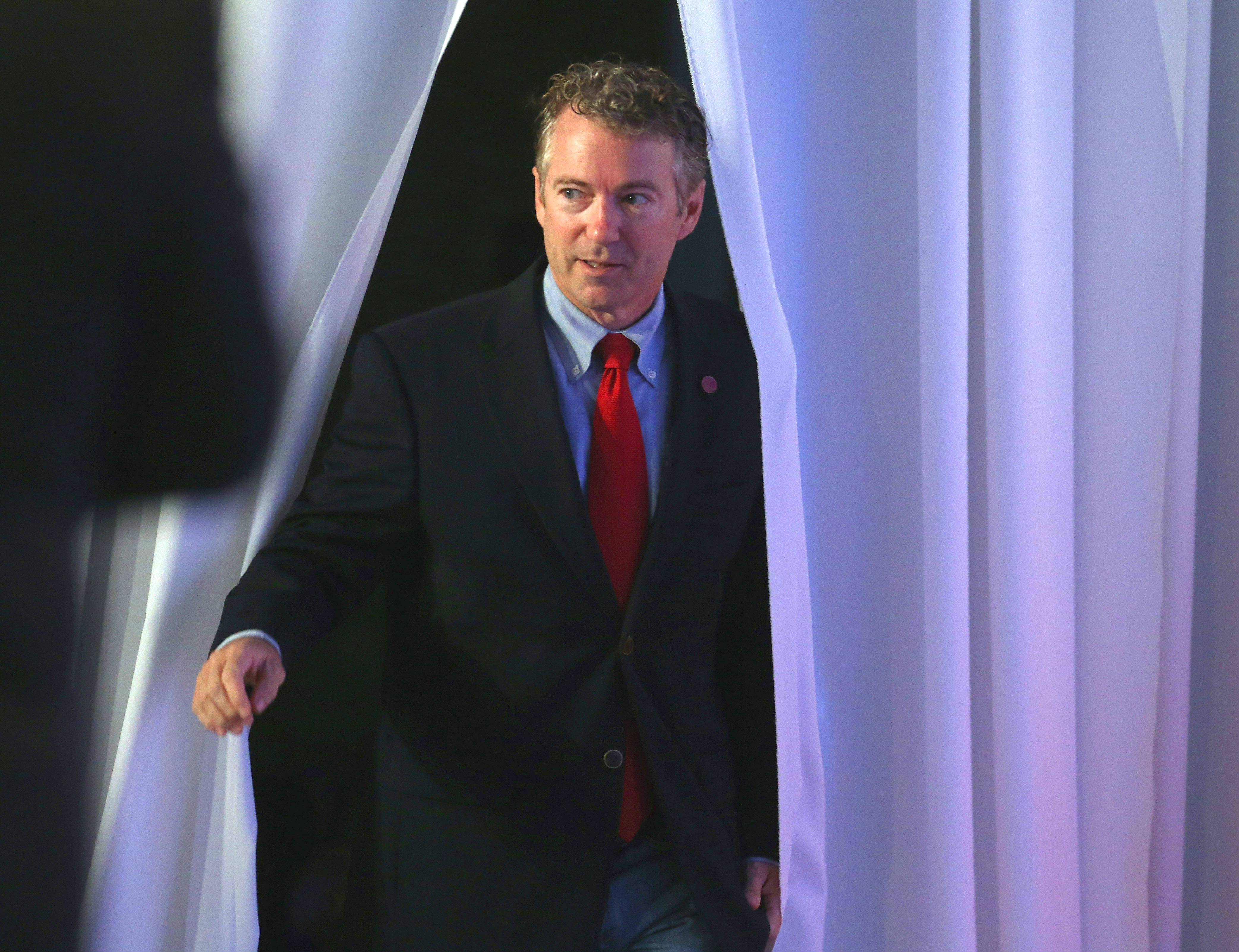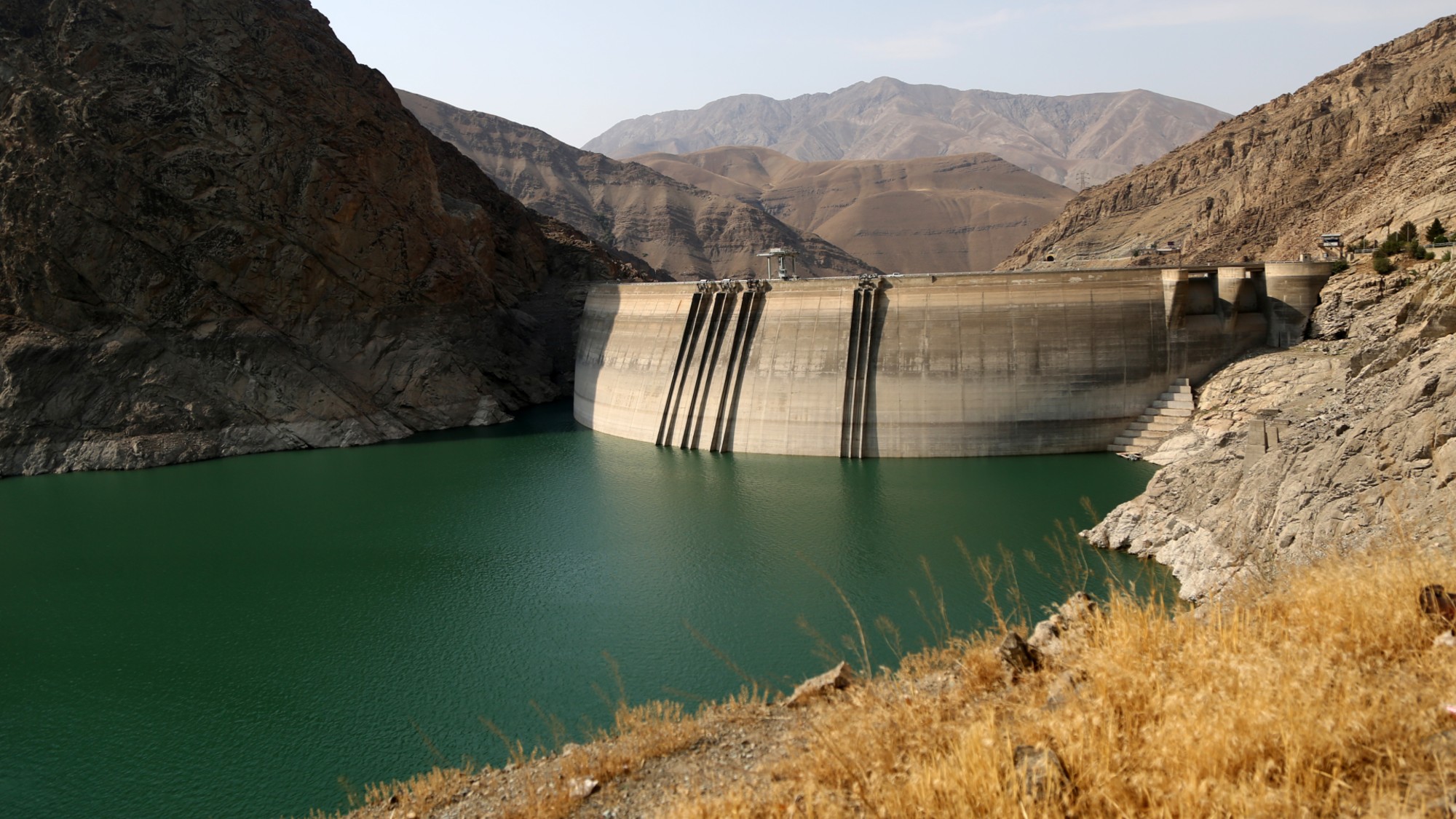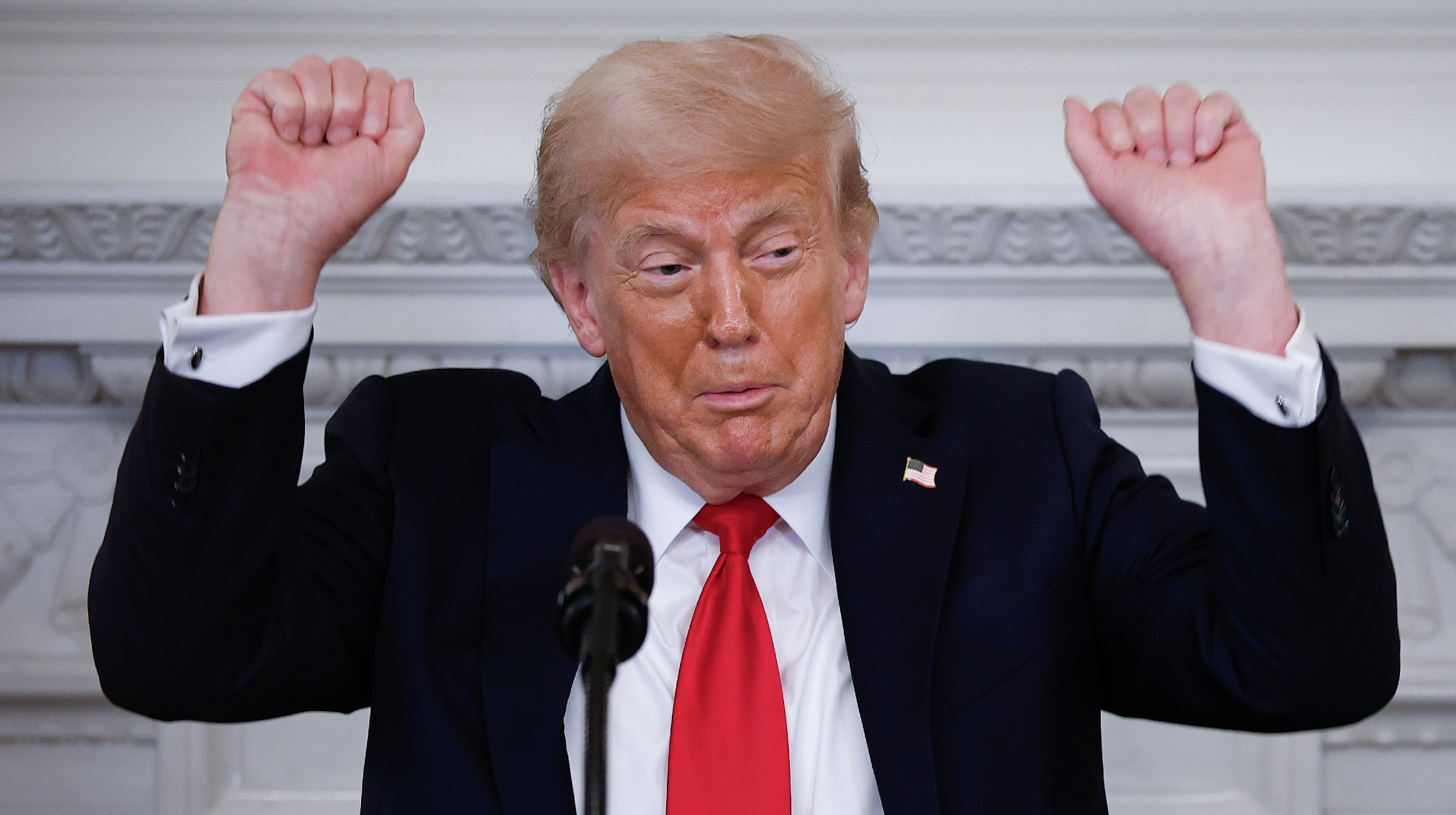Rand Paul is the 2016 candidate Republicans need. Too bad they won't admit it.
The freshman senator from Kentucky is the only Republican trying to widen the tent, but Republicans won't accept the price of expansion


Sen. Ted Cruz (R-Texas) was first out of the gate in the 2016 presidential horse race, and Sen. Marco Rubio (R-Fla.) is the underdog everyone suddenly seems to be rooting for. Former Florida Gov. Jeb Bush (R) is still probably the odds-on favorite to win the Republican presidential nomination, with Wisconsin Gov. Scott Walker not too far behind.
But this is the only prediction I'm comfortable making: Sen. Rand Paul (R-Ky.), who is announcing his candidacy in Louisville today, won't be America's next president.
That's not because the 52-year-old freshman senator from Kentucky wouldn't make a formidable candidate; it's because he won't get the chance. Republicans won't nominate him as their 2016 standard-bearer — luckily for Democrats.
Subscribe to The Week
Escape your echo chamber. Get the facts behind the news, plus analysis from multiple perspectives.

Sign up for The Week's Free Newsletters
From our morning news briefing to a weekly Good News Newsletter, get the best of The Week delivered directly to your inbox.
From our morning news briefing to a weekly Good News Newsletter, get the best of The Week delivered directly to your inbox.
Paul isn't necessarily a natural candidate — he can be a little unflatteringly churlish with the news media, a candidate's gateway to voters — but he doesn't come across as phony, and campaigning is a skill candidates can and do acquire on the trail. His campaign theme will be the aggressively populist couplet "Defeat the Washington machine. Unleash the American Dream":
Paul's teaser video gets a little messianic near the end, but the quotes he includes from various pundits seem pretty accurate: He is the most interesting candidate in the race, he is a "different kind of Republican," he does take some unpopular and principled stands, and he would appeal to more young and minority voters than the typical Republican candidate.
In his pre-announcement buildup, Paul touts himself as someone who "can beat Hillary Clinton" and "will broaden the reach of the Republican Party." That second part may be true. Paul ventures out of the GOP comfort zone to address black audiences, hipsters, the technorati, and other demographics not traditionally associated with the Republican Party, and he addresses substantive issues like prison sentencing reform, voting rights for felons, and curbing drone warfare that won't win him any Tea Party straw polls.
Perhaps most appealingly, Paul is a relative dove in a party that is increasingly returning to its hawkish posture after a brief flirtation with military restraint. On Sunday, Sen. Lindsey Graham (R-S.C.) dropped a superfluous dig at Paul in a critique of the Obama administration's framework nuclear deal with Iran: "I think everybody on our side except maybe Rand Paul could do better." But here's the thing: A sizable majority of Americans support an Iran deal, as The Week's William Falk points out.
Paul isn't anywhere close to being a Democrat, and he throws out his share of red meat, but he seems to understand that the issues that Republican activists and conservative media outlets fixate on don't resonate outside of the roughly third of the country having those conversations. He backs President Obama's Cuba rapprochement, for example, and he uses a Teleprompter, because it is a useful tool for reading speeches in public — and not one Obama was the first to make use of.
The same things that make Paul potentially attractive to independents and certain left-leaning constituencies, though, make him suspect to the only voters that can make him the GOP presidential candidate.
As hard as he's worked to build bridges to the GOP establishment — he all but has the endorsement of Senate Majority Leader Mitch McConnell, for instance — lots of Republicans still associate Paul with the more heterodox views of his father, former Rep. Ron Paul (R-Texas). On the other hand, Paul's concessions to his party's establishment and base don't sit well with the motivated group of libertarian conservatives who made Ron Paul a force to be reckoned with in the 2008 and 2012 GOP primaries.
Then there's the political culture of the Republican Party, which hasn't shown much appetite to put new or untested faces on the top of its presidential tickets: Mitt Romney, John McCain, George W. Bush, Bob Dole, George H.W. Bush, Ronald Reagan, Gerald Ford, Richard Nixon. The only outlier there is Ford, a congressman who happened into being the incumbent in 1976. The last real risk the GOP took was Barry Goldwater in 1964, and he lost in a landslide.
Rand Paul will have money to compete, and he will have a grassroots network to tap into, but he won't win the 2016 Republican nomination. Hillary Clinton, or the Democrats' Candidate X, should count her blessings.
A free daily email with the biggest news stories of the day – and the best features from TheWeek.com
Peter has worked as a news and culture writer and editor at The Week since the site's launch in 2008. He covers politics, world affairs, religion and cultural currents. His journalism career began as a copy editor at a financial newswire and has included editorial positions at The New York Times Magazine, Facts on File, and Oregon State University.
-
 Could Iran's water crisis be the regime's tipping point?
Could Iran's water crisis be the regime's tipping point?Today's Big Question Drought is a problem. So is government mismanagement.
-
 Trump revives K-12 Presidential Fitness Test
Trump revives K-12 Presidential Fitness TestSpeed Read The Obama administration phased the test out in 2012, replacing it with a program focused on overall health rather than standardized benchmarks
-
 El Salvador scraps term limits, boosting Nayib Bukele
El Salvador scraps term limits, boosting Nayib BukeleSpeed Read New constitutional changes will allow presidents to seek reelection an indefinite number of times
-
 Ghislaine Maxwell: angling for a Trump pardon
Ghislaine Maxwell: angling for a Trump pardonTalking Point Convicted sex trafficker's testimony could shed new light on president's links to Jeffrey Epstein
-
 The last words and final moments of 40 presidents
The last words and final moments of 40 presidentsThe Explainer Some are eloquent quotes worthy of the holders of the highest office in the nation, and others... aren't
-
 The JFK files: the truth at last?
The JFK files: the truth at last?In The Spotlight More than 64,000 previously classified documents relating the 1963 assassination of John F. Kennedy have been released by the Trump administration
-
 'Seriously, not literally': how should the world take Donald Trump?
'Seriously, not literally': how should the world take Donald Trump?Today's big question White House rhetoric and reality look likely to become increasingly blurred
-
 Will Trump's 'madman' strategy pay off?
Will Trump's 'madman' strategy pay off?Today's Big Question Incoming US president likes to seem unpredictable but, this time round, world leaders could be wise to his playbook
-
 Democrats vs. Republicans: which party are the billionaires backing?
Democrats vs. Republicans: which party are the billionaires backing?The Explainer Younger tech titans join 'boys' club throwing money and support' behind President Trump, while older plutocrats quietly rebuke new administration
-
 US election: where things stand with one week to go
US election: where things stand with one week to goThe Explainer Harris' lead in the polls has been narrowing in Trump's favour, but her campaign remains 'cautiously optimistic'
-
 Is Trump okay?
Is Trump okay?Today's Big Question Former president's mental fitness and alleged cognitive decline firmly back in the spotlight after 'bizarre' town hall event
